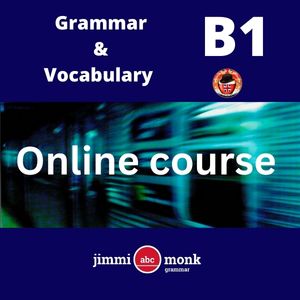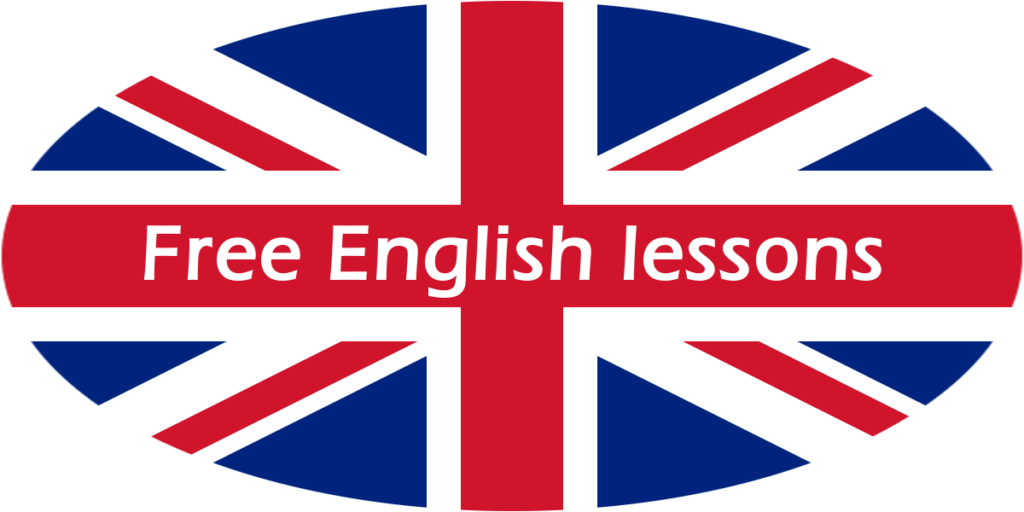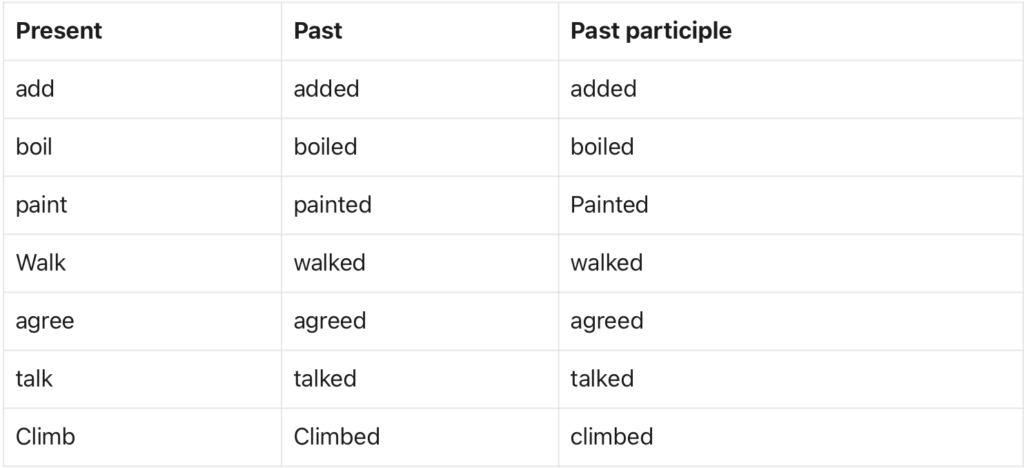
Top 10 rules for spoken English
- Posted by nomadtravelstudio
- Date February 2, 2023
Introduction- Spoken English is how the English language is transmitted through sounds and is spoken to convey things to others. This is a more conventional system as compared to written English. Spoken English, the more natural and widespread way of transmission, though ironically, most people find it much less familiar. This is because it is more difficult to ‘see’ what is happening in speech than in writing.
Various observations have been made regarding spoken English. One of these observations is the academic bias against Spoken English. The nature of standard English is primarily a written variety and does not augur well for their recognition of structures that may be typically like spoken English.
Basic English Grammar Rules With Examples for Spoken English
Also, the relationship between written and Spoken English is very crucial. Since the middle ages, written English served the purpose of transcriptions. Recently, writing on-line with the computer has hastened the trend and growth of informal speech. Hence, written English and spoken English are losing their identity as specific forms of language.
Speaking fluently in English has been a problem for many people. Reading, writing, or listening is fundamentally different from the skill of speaking in English. A person having writing, reading, or listening skills, but no speaking practice will struggle with fluency. Most English learners face difficulties in speaking because they tend to emphasize more on the grammar rules. This often makes them insecure and anxious.
As an English learner, you must spend quality time to understand the language. It involves practicing grammar, vocabulary, idioms, and colloquialisms. Spoken English is much more than just the theoretical knowledge of the English language.
Learners generally resort to several strategies to augment and enhance their skill in using a foreign language, English, in this case. At times, the lack of basic knowledge of grammar tends to create precarious situations for them. This mere misuse or mistake of grammatical points makes them judged.
Grammar is an elementary part of any language. The use of correct grammatical words frames a sentence. Grammar is essential because it is the language that makes it possible for us to talk about language. Grammar opens a window into the human minds and also into our complex mental capacity.
Grammar is often associated with errors and correctness. Grammar also helps us understand the preciseness of sentences and paragraphs. Grammar can be part of discussions on literature. And knowing about grammar allows us to find that all languages and all dialects follow grammatical patterns.
Many English language learners know all the grammar rules but have zero confidence with usage. As a result, they have to struggle a lot when it comes to speaking English fluently. Having an intellectual understanding of grammar can help some learners, but for others, it’s more about repetition, memorization, and getting idiomatic phrases onto their tongues.
Although, in the case of Spoken English, it is not just about the grammar but also about the way you speak. The fluency comes from regular practice. Grammar is just an ingredient to it to make it sound more precise and more distinct. But pronunciation and fluency are the most important.
Stephen Krashen, a professor at the University of Southern California and a linguist with plenty of work in second-language acquisition, has stated that language acquisition doesn’t require extensive use of conscious grammatical rules and does not require tedious drills. Apart from having a thorough knowledge of grammar such as tenses, subject-verb agreement, and so on, one must practice speaking. Particular emphasis must be given to reading and listening.
Besides grammar, one must learn to study different phrases. The use of correct words is vital for spoken English. It is also essential to get proper study materials with adequate information to get the best out of you.
1. Correct use of Tense
Tense is defined as a verb-based method for indicating the time and sometimes continuation of a process or action with relation to speaking. Tense can be classified into four forms: simple, perfect, continuous, and perfect continuous. Each of these three subtypes, namely, present, past, and future. In conversations, we generally use all of these, but it is essential to choose the correct Tense while speaking so that the sentence does not become complicated to say or even to understand.
1.1. Simple Tense
- Present-This is used to describe an action in the present time or a habitual truth.
Examples:
I read the book.
My brother does regular exercise every afternoon.
The sun rises in the east.
I take a walk in the afternoon.
- Past-It is used to denote an action that happened in the past.
Examples:
He watched TV every day after coming back from school.
The servants used to tell them stories.
We played badminton.
- Future-It describes an action that will be done in the future.
Examples:
I shall go to school.
He will do the work.
My father will come here tomorrow.
1.2. Continuous Tense
- Present- Present Continuous Tense is used when an action is continued or is going to be resumed shortly.
Examples:
I am reading a book.
We are going to Delhi tonight.
He is writing a book.
I am walking in the par
- Past- Past Continuous Tense is used to denote when the action was continued for some time in the past.
Examples:
I was playing.
He was having breakfast.
It was raining.
I was walking in the park
- Past-Past perfect Tense is used in the former action between two completed actions of the past.
Examples:
He had come home.
They had opened the door.
Hardly had we left when it began to snow.
I had walked into the park before it started raining.
- Future-This is used to indicate the completion of an action by a specific time in the future.
Examples:
I shall have written the letter by then.
He will have left the place.
I shall have done my work before my school reopens.
1.4. Perfect Continuous Tense
- Present-Present perfect continuous Tense is used for an action that began in the past and continuing.
Example:
I have been walking in the poolside for the last 30 minutes.
We have been working on this project since last month.
She has been doing the job all week.
It has been raining since Sunday.
- Past-It is used when the action began before a certain point in the past and continued up to that time.
Examples:
I had been walking.
We had been working.
It had been raining.
She had been teaching.
- Future-Future perfect continuous is used when the doer will have been doing the work by a specific time in the future.
Examples:
I shall have been doing this.
He will have been studying in Oxford before he gets his degree.
2. Use of Regular and Irregular Verbs
English verbs can be regular or irregular. In regular verbs, conjugation follows a typical pattern, whereas, in irregular verbs, conjugation follows a different pattern. A verb is classified as regular or irregular depending on past and past participle forms of the present form.
2.1. Regular Verbs
Regular verbs are formed by adding -ed in their past and past participle forms. These are often termed as ‘weak verbs.
2.2. Irregular Verbs
The past and past participle forms of irregular verbs are formed in different ways or patterns.
There are mainly three kinds of irregular verbs.
- Verbs where all the three forms are the same.
Examples:
Put- put- put
Cut-cut-cut
Spread-spread-spread
Thrust-thrust-thrust
Read-read-read
- Verbs where two forms are similar.
Examples:
Beat-beat-beaten
Cling-clung-clung
Stick-stuck-stuck
Hang-hung-hung
Spin-spun-spun
Sit-sat-sat
- Verbs where all the three forms are different.
Examples:
Drink-drunk-drunk
Blow-blew-blown
Thrive-throve-thriven
Arise-arose-arisen
Freeze-froze-frozen
Some verbs can be considered as both regular and irregular. These are specific and are easy to remember. Also, there are just a few of such words.
Examples:
Spoil – spoilt – spoilt (irregular)
Spoil – spoiled – spoiled (regular)
Lean – lent – lent (irregular)
Lean – leaned – leaned (regular)
Leap – leaped – leapt (irregular)
Leap – leaped – leaped (regular)
Dream – dreamt – dreamt (irregular)
Dream – dreamed – dreamed (regular)
Smell – smelt – smelt (irregular)
Smell – smelled – smelled (regular)
Burn – burnt – burnt (irregular)
Burn – burned – burned (regular
Spill – spilt – spilt (irregular)
Spill – spilled – spilled (regular)
Learn – learnt – learned (irregular)
Learn – learned – learned (regular)
3. Use of Common Prepositions
A preposition is a word placed before a noun or a pronoun or noun-equivalent to relate to any other term of the sentence. The noun or pronoun or the noun-equivalent is called its object. The use of correct preposition is essential when you are speaking.
Examples:
Put the cup on the dish.
He is fond of reading novels.
The sky is above our head.
She lives with her parents.
Prepositions may be grouped into six specific classes:
- Simple Prepositions- at, in, of, for, over, under, from, with, on, etc.
- Double prepositions- into, onto, within, from among, towards, etc.
- Compound prepositions- across (on + cross), beside (by + side), beneath (by + neath), etc.
- Prepositional Phrases- by dint of, instead of, in the course of, etc.
- Participle prepositions- regarding, considering, etc.
- Disguised prepositions-
Examples:
She comes here once a week.
Four o’clock.
4. Type I Conditional Sentences
You are using Present simple instead of ‘will’ + Infinitive future when you describe things that might or might not happen. Typically, these sentences must be started with conjunctions like, ‘if’, ‘when’, ‘as soon as’, ‘unless’, etc.
5. Subject Pronoun vs. Object pronoun vs. Possessive pronouns
A replacement of a noun or a noun-equivalent is called a pronoun. The function or the role of pronouns falls under three categories: subject pronoun, object pronoun, and possessive pronoun.
Example:
He is talking about Lily’s art.
Here, Lily is the subject pronoun.
A possessive pronoun shows the relationship.
In case when ‘Lily’ is replaced with ‘she’, it becomes an object pronoun.
6. Subject-Verb agreement
The person or thing that acts, i.e., the verb, is called a subject. For example: He is reading a book. Here, ‘he’ is the subject.
Commonly termed as Syntax, Subject-verb agreement is the rule of placing the verbs in agreement with the subjects in number or person
General rules of this subject-verb agreement include-
- Different forms of ‘be’ verb:
1st person- I am, we are, I was, we were
2nd person- You are, you were
3rd person- He is, they are, she was, they were
- Different forms of ‘have’ verb:
1st person- I have, we have, I had, we had
2nd person- You have, you had
3rd person- He has, they have, he had, they had
- Other verbs: No change except for subject in 3rd person singular in simple present Tense.
Example- I do, we do
He does, they did.
You do, you did.
7. Use of appropriate adjectives
Adjectives are words that qualify a noun or a pronoun. Usually, when speaking of an object or a subject, different terms are often used to describe them in particular. In spoken English, it is essential to use correct adjectives while having a conversation.
Adjectives may be classified as:
- Proper adjectives- Example: Indian, Chinese, European, American, etc.
- Adjective of quality- Example: good, bad, noble, dishonest, rich, poor, hot, warm, etc.
- Adjective of quantity- Examples: huge, full, enough, whole, little, all, etc.
- Numerical adjectives- Examples: one, two, three, third, fourth, several, few, etc.
- Demonstrative adjective- Examples: this, that, these, those, such, etc.
- Distributive adjective- Examples: each, every, either, neither, etc.
- Interrogative adjective- Examples: whose, which, what, etc.
- Possessive adjective- Examples: my, your, our, her, his, etc.
Now, adjectives have a degree of comparison, namely, positive, comparative, and superlative.
Example: Short(positive), shorter(comparative), shortest(superlative
Beautiful(positive), more beautiful (comparative), most beautiful (superlative)
This use of degree while speaking must be kept in mind and must be used appropriately.
8. Correct use of adverbs
Adverbs are used to highlight or qualify any part of speech except for a noun and a pronoun, modifying the meaning of a verb, adjective, or even another adverb. There are mainly three types of adverbs: Simple, relative, and interrogative.
Adverbs can e used in three definite ways. These are:
- Attribute adverb– It attributively qualifies another word after it.
Example: She shouted very loudly.
- Predicative adverb-It is predicatively used when placed in the predicate part of the sentence.
Example: It is here.
- Introductory adverb– Used at the beginning of a sentence.
Example: Here is a call for you.
- Adverb particles-These are prepositions that can also be used as adverbs and are called adverb particles.
Example: He raised his hands up.
9. Conjunctions to join
One must use correct conjunctions to join sentences, words, or even clauses while speaking or even when writing. Conjunctions have two functions: 1) Coordinating 2) Subordinating.
These are used to join the principal clause and a subordinate clause and even to denote the clauses. These indicate effect, purpose, manner, degree of comparison, condition, contrast, apposition, and concession.
Examples: Ram and Rahul are good friends.
He is so feeble that he cannot even stand properly.
Hardly had I left the room when the lights went off.
10. Proper Use of Singular and Plural Nouns While Speaking
While learning about English grammar, nouns are to be taught first. These are naming words and can be singular or plural. Singular nouns denote one person, place, thing, or object. Plural nouns refer to multiple locations, things, people, items.
Example:
Doctor (singular)- Doctors (plural)
Person(singular)- persons (plural)
Lady(singular)- Ladies (plural)
It must be noted that some words are constant in both singular and plural forms. Example:
Sheep- sheep
Jewellery- jewellery
Homework- homework
Conclusion
Many people have shallow confidence while speaking English. They stress the correctness, grammar, and vocabulary part. Hence, they have to keep a lot of things in mind while talking. Their fluency is curtailed, and they stumble over words. They have a lot of insecurities, fears, and anxiety, as they are always being judged.
Speaking English becomes very difficult when you compare your English level to what you want to achieve. Learning English doesn’t come naturally at the moment you start speaking. It is a continuous and regular habitGrammar rules are essential while learning or even speaking English, but one must keep in mind that just these rules will not yield much progress in your speech if you do not practice speaking English regularly. Spoken English emphasizes mainly fluency and hence regular practice is crucial for rapid improvement.

Elena Malyshkina
James is a very professional teacher with whom i recommend to work 100%.
I had several goals before we start
1 – resume my English communication skills after almost a 10-year break
2 – not to afraid to speak because of the possible grammar mistakes
3 – expand my vocabulary to continue working in consulting business all over the world
And during our lessons we archived it on 100%, 100% and 70% now and “work in progress”.
Advantages of working with James:
– Native speaker – faster progress
– Very extensive work experience and professional approach is felt thanks to this
– Personal training materials, which are constantly improving and progressing
– Very diverse tips on how to progress independently in between classes
– It is always a pleasure to work with a person who understands his mission
– James’ interest in student development is always felt
I highly recommend working and have progressed in English with James!

Ilya
We have been working with Jimmi since October 2021. He is an excellent teacher who is ready to adapt to your wishes. We had excellent and productive IELTS preparation classes and had wonderful conversational classes where we discussed various topics and our hobbies. It turned out that Jimmi loves music and Formula 1, just like me. Classes are fun and fruitful!
Dmitry
“Смело могу рекомендовать James кака репетитора английского языка.
Открытый и доброжелательный человек. Общение идет только на английском, так как другого языка он не знает. Объясняет все доходчиво и понятно. Преподаватель адаптирует стили ведения урока под знания ученика, знаю так как мой сын также учился у James.
Нет напряжения и отношения- я учитель, ты ученик. С James ты изучаешь настоящий английский –английский.

Nikita Mukhin
После 2,5 лет в международной школе у 12- летнего сына был приличный уровень английского, поэтому когда мы прервали обучение там, стали искать репетитора “native speaker”. Джимми Монк стал настоящей находкой для нас! Два урока в неделю по скайпу в течение года позволили не только сохранить набранный уровень, но и существенно продвинуться в лексике. Очень важно, что сын слышал от учителя “настоящий британский английский”, не отягощенный акцентом.
Через год, вернувшись в международную школу, сын смог успешно сдать вступительный тест и не испытывал значительных сложностей в общении с преподавателями и своими позврослевшими англоговорящими одноклассниками. Спасибо Джимми за это!

Polina Mark and Kira

Yulia Anisakharova,
When I started learning English with James my speaking skills were so poor, that I asked him to work on General English instead of Marketing. I felt very uncomfortable while speaking. Months were passing by, James was providing me with such complex topics, which I almost never speak about in Russian. I struggled with discussing them. But in 3 months I was able to easily go through a job interview! I haven’t even realised when I became such confident! And James provided me with useful idioms, such expressions that natives use, like “I’m in between jobs” instead of “I don’t work currently”. Also, I want to mention that James is an incredibly interesting person to talk to! He has more than 20 years of travelling experience and so many brilliant stories to tell from there! So I’m very happy that I could learn from him!
Yulia Anisakharova,
Moscow, Russia

Sergei
Business English was what I wanted, But not just business I wanted pacifically Law. And James organized a perfect course for me and gave me all the vocabulary and grammar used for law. We studied for 6 months. What I like about James is he will just do things as and when needed. We work on my pronunciation and fluency and confidence It only took 6 months to get my fluency perfect. James is a great language coach and I advise anyone that choosing James would be the right decision. Really thank you, James
Previous post
<tg>Mostbet Partners Mostbet Sports Betting & Casino Affiliate Program Reviews</tg
You may also like
Betting Organization Mostbet App On The Internet Sports Betting 418 Sayfa Bulunamadı Resmi Net Sitesi Online Mağaza Content Mostbet Giriş: Çevrimiçi Spor Bahisleri Empieza Casino Being Unfaithful, 000’ye Kadar Bonus Mostbet’te Spor Bahisleri Nasıl Yapılır? Hızlı İşlemler Mostbet Aviator Tərəfindən …







